
Self-Proclaimed “Non-Judgmental” Woman Enters Kindness Contest To Win $25k, Man She Bullied Over Cosplay Steps In To Deliver Karma
Online communication often encourages negativity. Without face-to-face contact, a person might be more inclined to say something insulting or hostile, safe in the knowledge that their target is far away. But we should never forget that on the other side of the screen there is a human being with real feelings and, more importantly, the capacity for revenge.
Recently, Reddit user Daligheri detailed his experience with having his appearance insulted online. What’s worse is that the negative comment wasn’t from a stranger; no, it was from an acquaintance. He wasn’t going to take this lying down, so the fact that he posted in r/pettyrevenge should tell you where this is going.
A person posted pictures of himself cosplaying a character from a Netflix series and received some negative comments from an unknowing acquaintance

Image credits: MgrSanko (not the actual photo)
The acquaintance ended up blocking OP after he reached out, so he hatched a plan to make her lose an online contest
Image credits: CD Projekt RED
The person gave her the benefit of the doubt at first, but she preferred to block all communications
Image credits: Brian Jiz (not the actual photo)
Image credits: Daligheri
Negative comments are unfortunately becoming more common
Image credits: Anna Shvets (not the actual photo)
Commenting online does psychologically differ from real speech in a number of ways. The lack of instant feedback, particularly things like facial expressions and tone shifts, means that the “normal” repercussions of insulting someone simply don’t exist. Take any mean comment you see online and imagine saying it to someone’s face. If you are a human with any amount of empathy, you would probably reconsider.
As sad as it sounds, some experts suggest forgoing comments sections entirely. Some celebrities, like Billie Eilish, have said that they now fully avoid reading any comments. Researchers of news-site commenters found that over 50% of the posts made by users could be classified as “uncivil,” which is a pretty nice way to say that these people were being mean. In this particular study, the focus was on anonymous comments. It’s true, anonymity does tend to create a feeling of invulnerability, so the commenter feels free to be provocative and rude.
Our brains don’t help us avoid negativity either. A recent study using eye tracking software discovered that we naturally seek out and focus on specific emotions in a text. Anger and fear tend to get and hold our attention very quickly. As you can probably imagine, these emotions tend to skew towards the negative side of things. Even worse, our brains like to keep this specific information. So you can read through ten lovely, uplifting comments, but it’s that one nasty example that really sticks in your head.
We could all benefit if everyone took a few moments to think about what they comment
Image credits: Lisett Kruusimäe (not the actual photo)
But, there is some good news! Numerous studies suggest that we actually tend to see things more positively in the long run. As humans age, we retain positive memories more often than negative. Scientists believe that this is due to the need to learn from criticism and mistakes when we are younger, something which diminishes as we age. So this knowledge may not make some hurtful comments go away, but maybe it helps to know that over time, your brain will work on hiding those memories away.
In Daligheri’s situation, the negative comments were made on a Facebook group, meaning that the full name and information of the commenter was on display. Even in this situation, his acquaintance decided that posting something negative was ok to do. Well, dear Pandas, that may seem inconceivable, but research suggests that even without anonymity, up to 29% of comments are hostile. Unfortunately, this lack of empathy just doesn’t help anyone. It makes the recipient feel bad, and it may even backfire, as this story demonstrates.
And it’s not just the people in these stories who suffer. We all are worse off as well. Because we expect comments to be negative or rude, there is less of a desire to engage with others under a YouTube video or Twitter post. So, dear Pandas, we do actually love to hear what you have to say in the comments! Have you had to deal with some jerk being rude or insulting people? Tell your story below.
Commenters showed support for his petty revenge and OP was kind enough to answer some follow-up questions
They then further discussed the means of his revenge and his cosplaying experiences
Wow... hmm... firstly.. my favourite thing... I kinda have to say, I like the "megathunderc**t" insult... that made me laugh. Gotta add that one to the list... secondly - what the actual f*** is up with "Missy"? Conscious, purposeful hypocrite, bleh. OP accomplished the kind of 'you earned this' payback I can only *wish* I could enact on some. (also... hmm... 'looks like Ciri'... so... blonde, skinny, pret---- oh, wow... so she even looks the stereotype... wow.)
Wow... hmm... firstly.. my favourite thing... I kinda have to say, I like the "megathunderc**t" insult... that made me laugh. Gotta add that one to the list... secondly - what the actual f*** is up with "Missy"? Conscious, purposeful hypocrite, bleh. OP accomplished the kind of 'you earned this' payback I can only *wish* I could enact on some. (also... hmm... 'looks like Ciri'... so... blonde, skinny, pret---- oh, wow... so she even looks the stereotype... wow.)

 Dark Mode
Dark Mode 

 No fees, cancel anytime
No fees, cancel anytime 


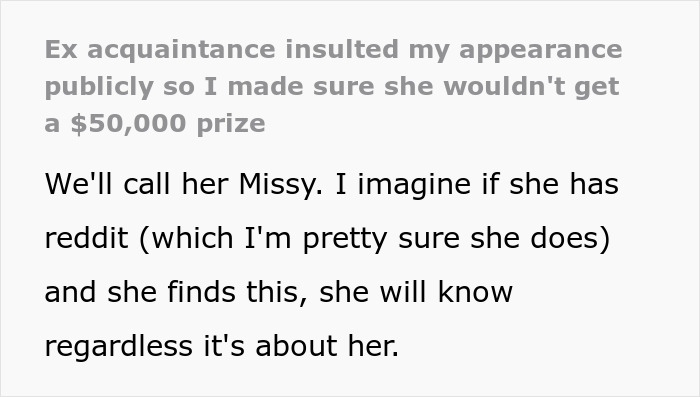
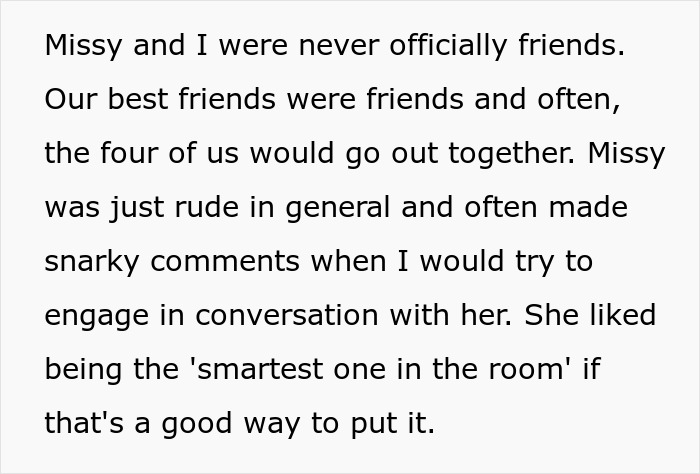
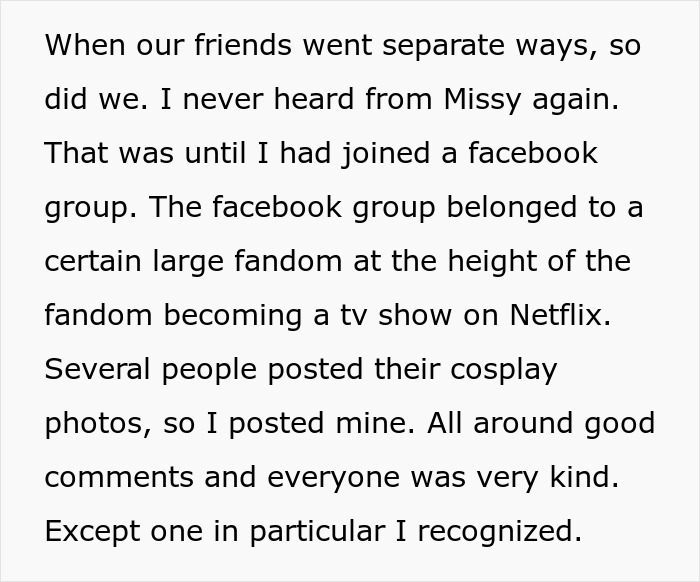

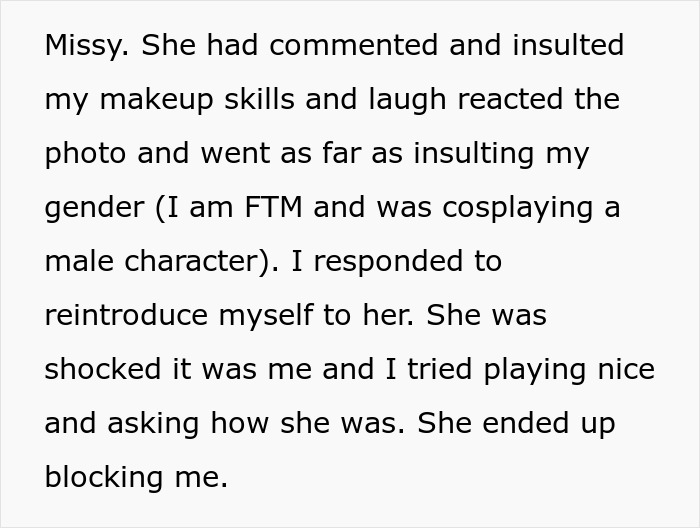
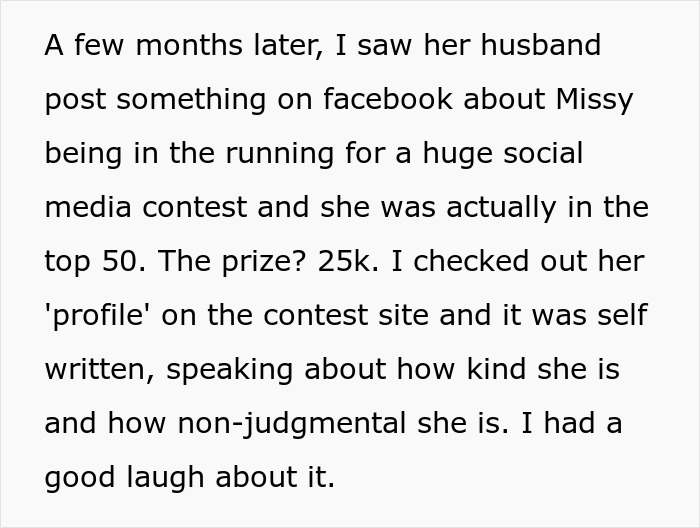
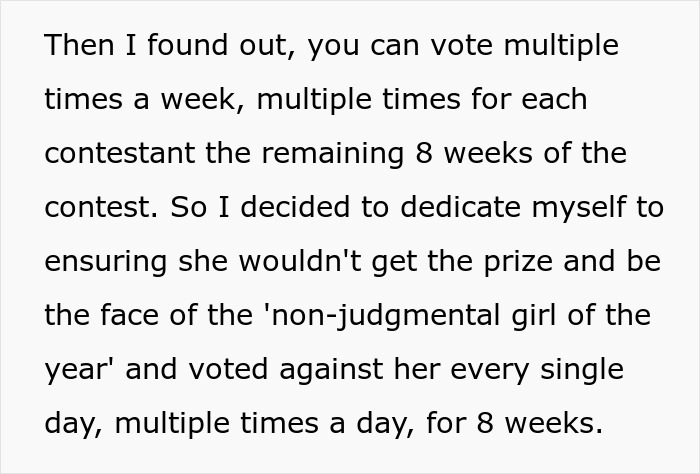




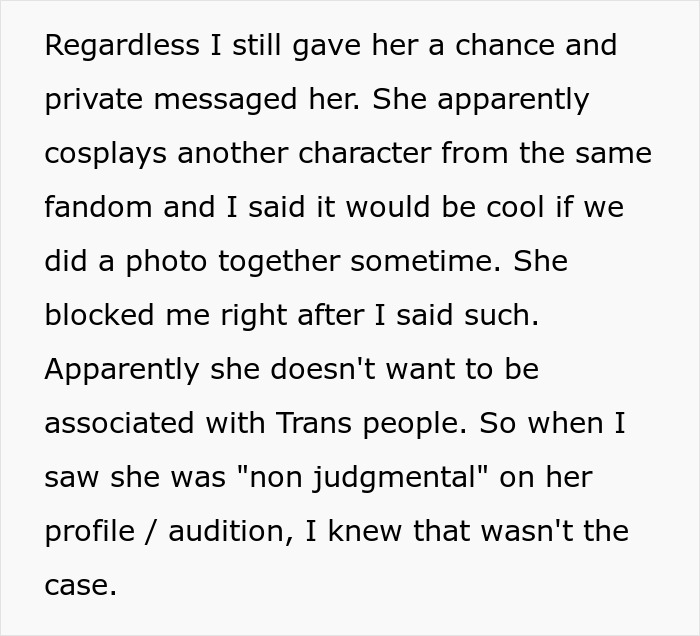
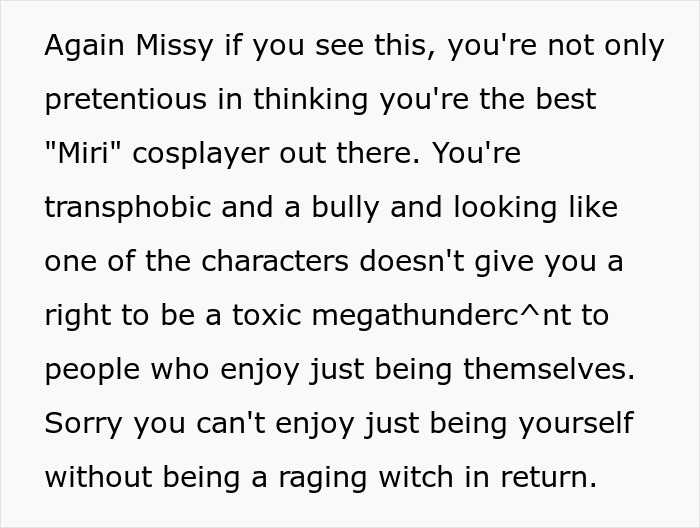


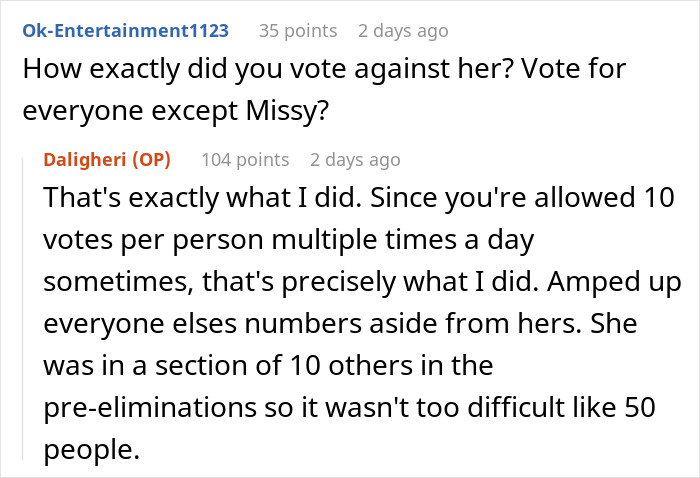
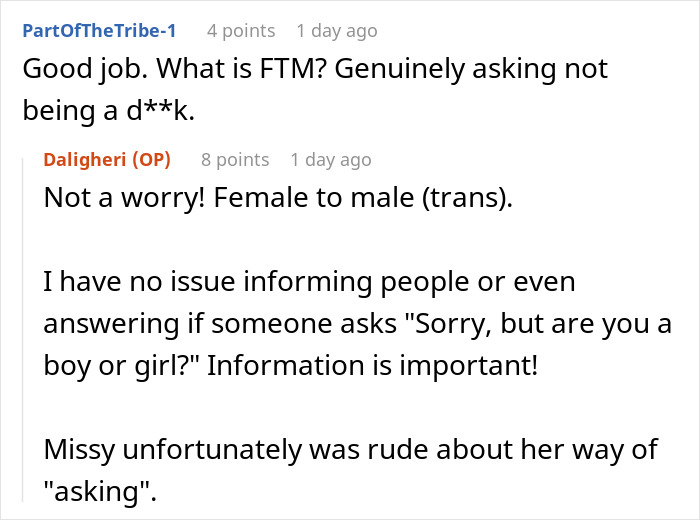
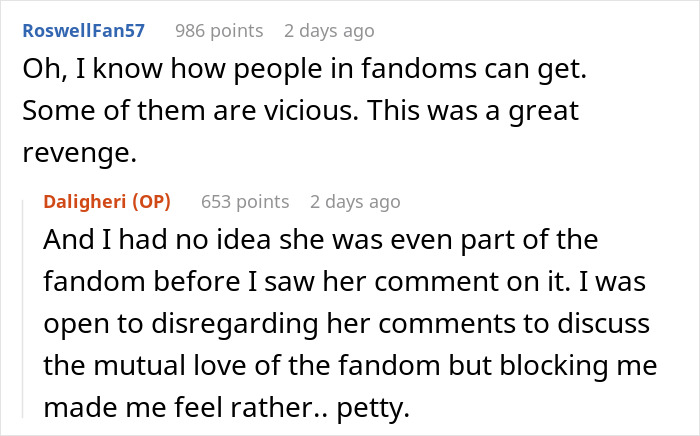
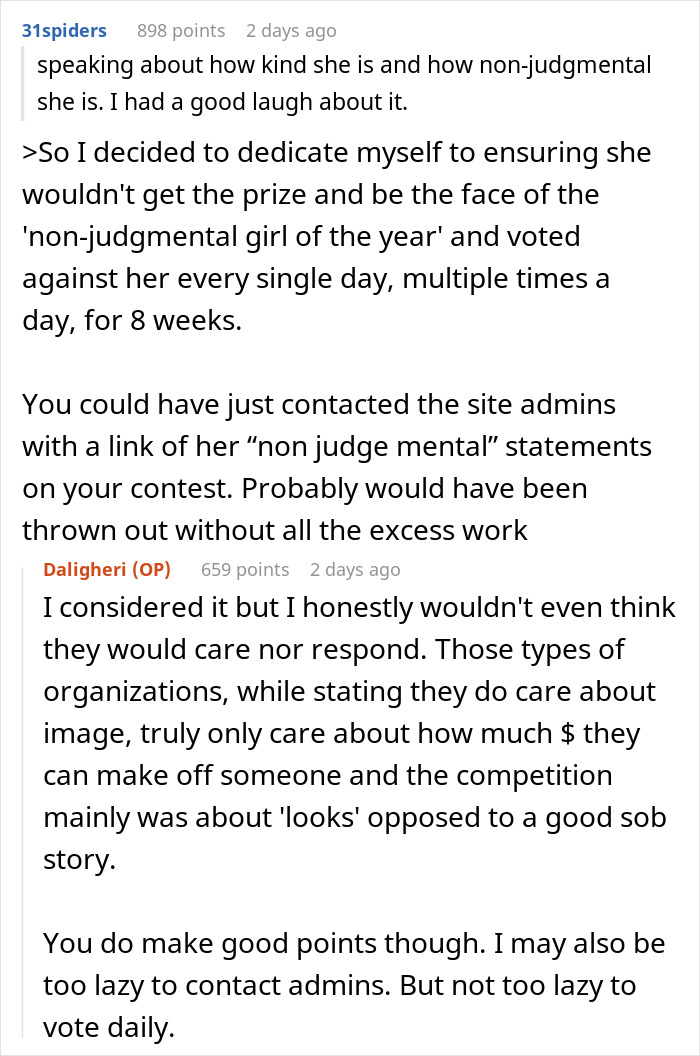
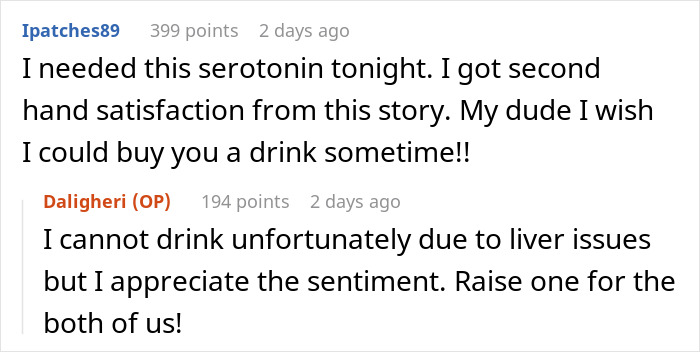


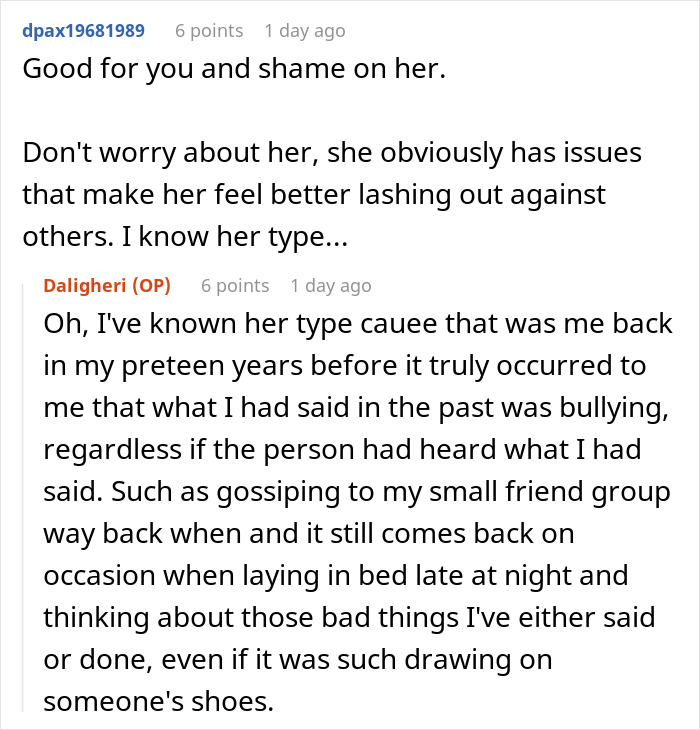
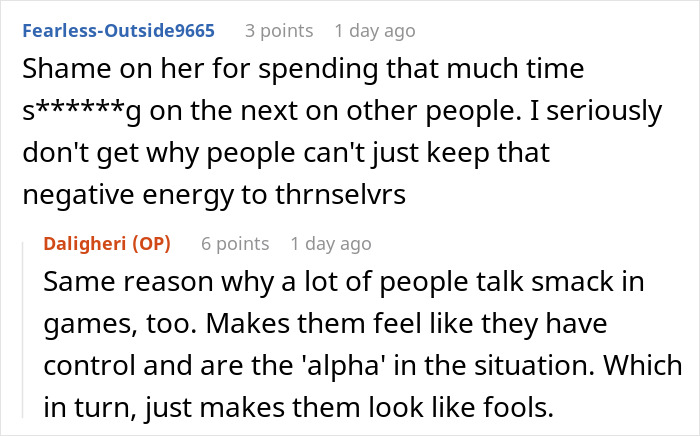






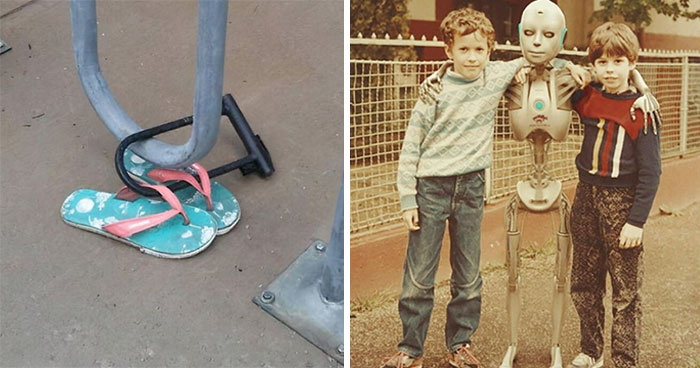



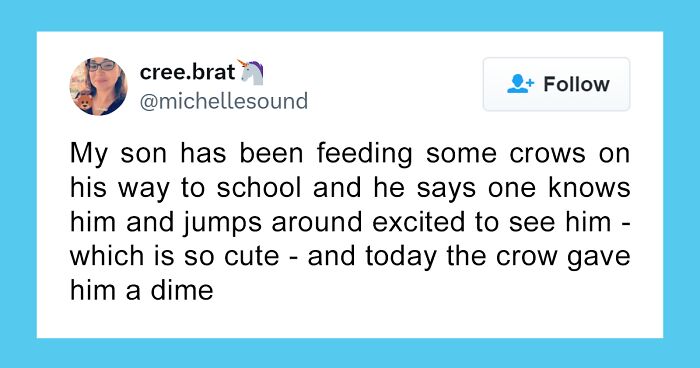



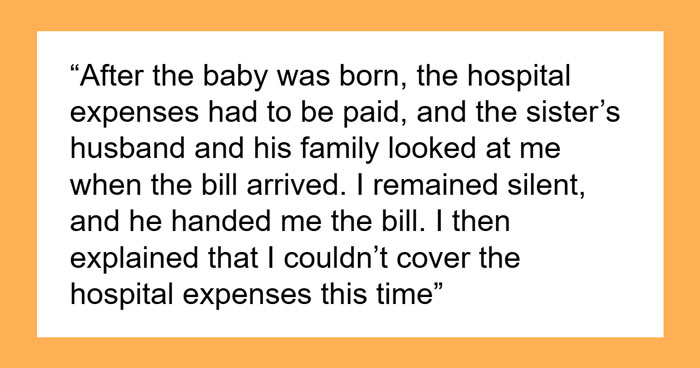



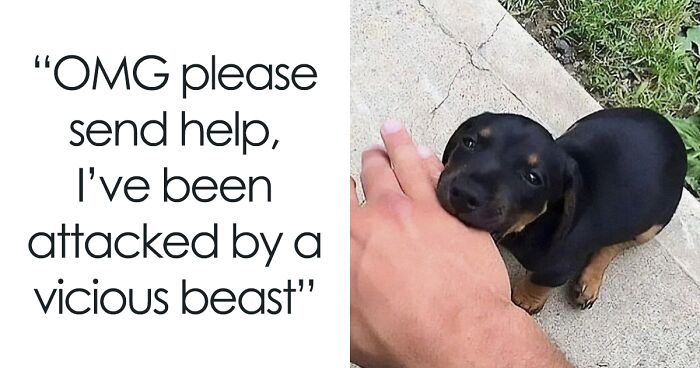


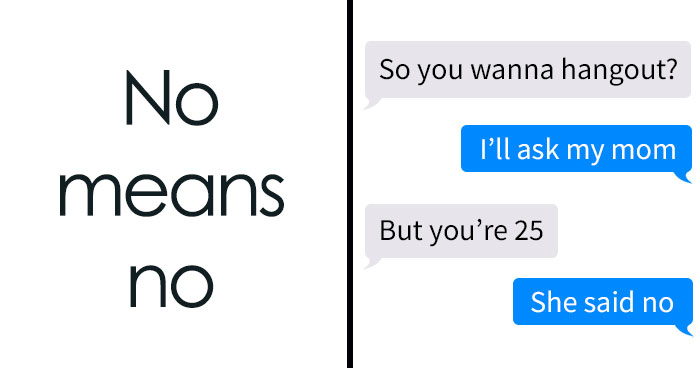

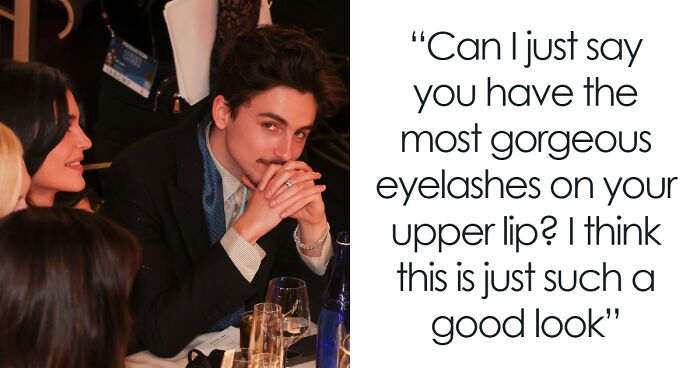

53
19